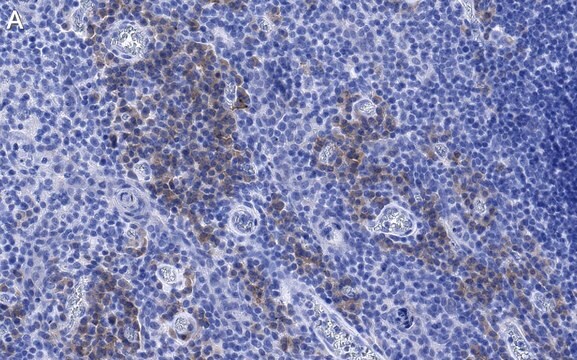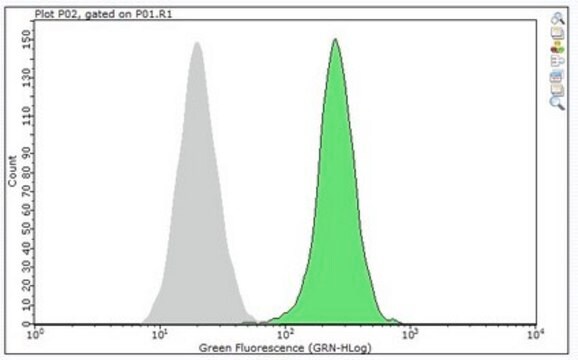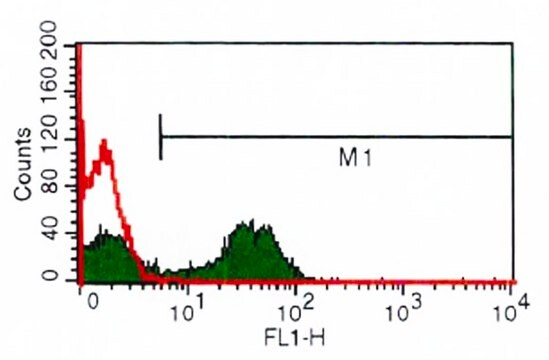CBL517
Anti-CD28 Antibody, clone 15E8
clone 15E8, Chemicon®, from mouse
Synonim(y):
Tp44
About This Item
Polecane produkty
pochodzenie biologiczne
mouse
Poziom jakości
forma przeciwciała
purified antibody
rodzaj przeciwciała
primary antibodies
klon
15E8, monoclonal
reaktywność gatunkowa
human
spodziewany brak reakcji z
canine
producent / nazwa handlowa
Chemicon®
metody
flow cytometry: suitable
izotyp
IgG1
numer dostępu NCBI
numer dostępu UniProt
Warunki transportu
wet ice
docelowa modyfikacja potranslacyjna
unmodified
informacje o genach
human ... CD28(940)
Specyficzność
FUSION PARTNER: SP2/0
Immunogen
Zastosowanie
Inflammation & Immunology
Immunoglobulins & Immunology
This antibody will act in cell stimulation studies where it has been suggested that measuring T cell function in HIV infected asymptomatic patients may be an early indicator of AIDS, independent of CD4 + cell counts
Optimal working dilutions must be determined by the end user.
Powiązanie
Postać fizyczna
Przechowywanie i stabilność
Inne uwagi
Informacje prawne
Oświadczenie o zrzeczeniu się odpowiedzialności
Nie możesz znaleźć właściwego produktu?
Wypróbuj nasz Narzędzie selektora produktów.
Kod klasy składowania
12 - Non Combustible Liquids
Klasa zagrożenia wodnego (WGK)
nwg
Temperatura zapłonu (°F)
Not applicable
Temperatura zapłonu (°C)
Not applicable
Certyfikaty analizy (CoA)
Poszukaj Certyfikaty analizy (CoA), wpisując numer partii/serii produktów. Numery serii i partii można znaleźć na etykiecie produktu po słowach „seria” lub „partia”.
Masz już ten produkt?
Dokumenty związane z niedawno zakupionymi produktami zostały zamieszczone w Bibliotece dokumentów.
Nasz zespół naukowców ma doświadczenie we wszystkich obszarach badań, w tym w naukach przyrodniczych, materiałoznawstwie, syntezie chemicznej, chromatografii, analityce i wielu innych dziedzinach.
Skontaktuj się z zespołem ds. pomocy technicznej








